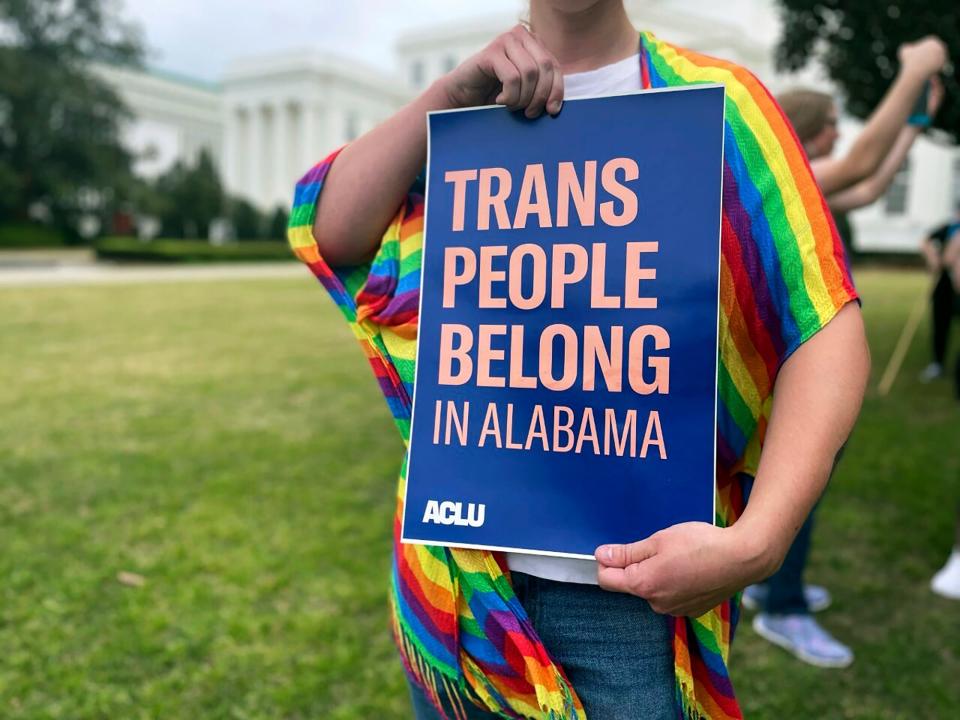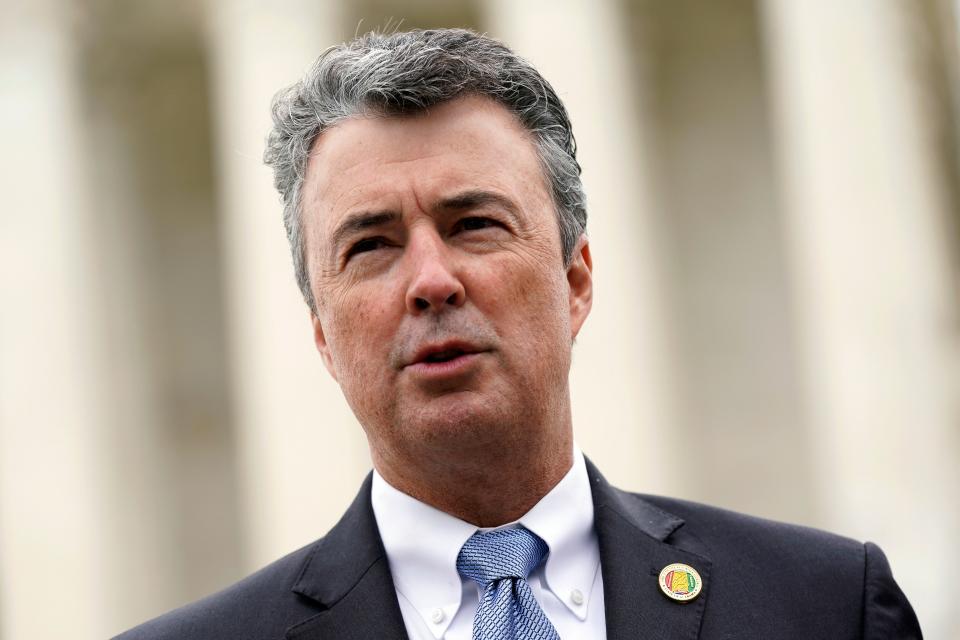Transgender rights: How abortion helped revive Alabama's ban on gender affirming care
A federal appeals court Monday allowed Alabama to enforce a ban on gender-affirming care for minors, relying in part on the Supreme Court's landmark decision last year to overturn Roe v. Wade.
A three-judge panel of the Atlanta-based U.S. Circuit Court of Appeals for the 11th Circuit sided with the state over objections from a group of transgender minors and their parents who argued the state law violated the Fourteenth Amendment. Repeatedly citing the Supreme Court's decision in its major abortion case last year, the appeals court reasoned that there was no deeply rooted right to use of the medications in the nation's history.
The ruling follows a series of decisions in recent weeks against similar bans. A day earlier, a federal judge in Georgia temporarily blocked parts of that state's ban on gender-affirming care for transgender minors. But the court's ruling in the Alabama case underscores how the reasoning behind the overturning of Roe is having an impact beyond abortion.
"The Supreme Court has instructed courts addressing" 14th Amendment claims to engage in a "'careful analysis of the history of the right at issue' and be 'reluctant to recognize rights that are not mentioned in the Constitution,'" the appeals court wrote, quoting from the Supreme Court's abortion decision. Based on that standard, the appeals court reasoned, the plaintiffs likely did not show that they have a right to gender affirming care.

Alabama's law makes it a crime to provide puberty blockers or hormone treatments to a minor. A U.S. District Court handed down an injunction blocking the law from taking effect last year. Alabama appealed that decision. The litigation will continue as courts assess whether to strike down or uphold the Alabama law permanently.
In its major abortion decision last year, Dobbs v. Jackson Women's Health Organization, a majority of the Supreme Court held that the right to end a pregnancy was not found in the text of the Constitution nor the nation's history. Experts warned at the time that the reasoning could set off challenges to other rights that, like abortion, have been grounded in the 14th Amendment's guarantee of due process. Many of those have been taken for granted for years, such as the right to same-sex marriage, the right to interracial marriage and the right to access contraception.
Alabama Attorney General Steve Marshall, a Republican, said that the appeals court ruling Monday “reinforced that the state has the authority to safeguard the physical and psychological wellbeing of minors.” The state, he said, “takes this responsibility seriously by forbidding doctors from prescribing minors sex-modification procedures that have permanent and often irreversible effects.”
Several groups represented the families, including the National Center for Lesbian Rights, GLBTQ Legal Advocates & Defenders, The Southern Poverty Law Center and the Human Rights Campaign. The groups said in a statement that the ruling was a “deeply disappointing decision” but that “we are confident that it is only a temporary one.”
Jeff Doss, an attorney representing the plaintiffs, said that the groups are “carefully considering all available options, including further appellate review.” The decision could potentially be appealed to the Supreme Court.

All three judges on the panel were appointed by former President Donald Trump.
This article originally appeared on USA TODAY: Alabama ban on care for transgender youth backed by federal court

